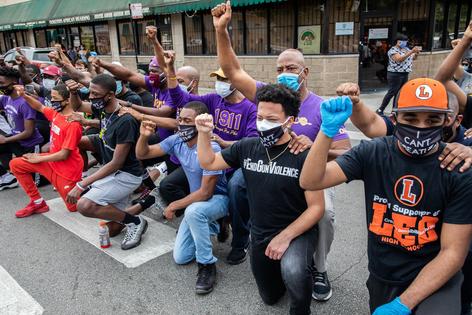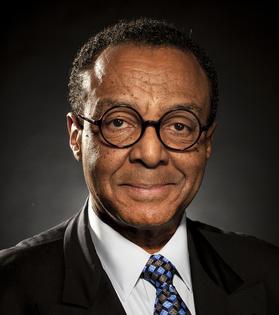Father’s Day reminds me of who taught me about fatherhood
Father’s Day has taken on special significance this year.
A national conversation on race has boiled up on screens, on paper and in the streets since George Floyd’s death May 25 beneath the knee of a Minneapolis police officer.
So has a resurgence in the 55-year-old debate about the troubled status of the African American family.
I can see it in my email inbox. Just as booksellers report a surge in demand for books about race and racism, so have I seen an uptick in emails, either to ask about what black folks think or to tell me what black folks should be thinking.
For example, a Wisconsin reader of my column for “a few months,” complained that “never once have I seen you address an obvious core issue with the black community: non-nuclear families. An unwillingness of black males to accept the role of head-of-household and the willingness of black females to let them get away with it.”
He goes on to cite Daniel Patrick Moynihan as having “hit the nail on the head” in his landmark 1965 report, “The Negro Family: The Case for National Action.” Popularly known as “The Moynihan Report,” it was “as true today as it was when written,” my reader said.
First, let me say welcome to all new readers. Second, I have written quite a bit about the debate that Moynihan, a distinguished sociologist, diplomat and Democratic senator from Massachusetts, touched off. Before he died in 2003, I also had the edifying pleasure of interviewing him a couple of times about the decline in numerous families in the industrial world, not just black folks.
What is overlooked too often in citations of Moynihan’s report is how much people have focused on the “Negro problem” more than Moynihan’s suggested solutions.
“The evidence — not final, but powerfully persuasive — is that the Negro family in the urban ghettos is crumbling,” Moynihan wrote in his introduction to the report, which he conducted for the Department of Labor and President Lyndon Johnson. “A middle class group has managed to save itself, but for vast numbers of the unskilled, poorly educated city working class the fabric of conventional social relationships has all but disintegrated.”
But as much as Moynihan shaped decades of debate about race, poverty and family life, it led to more blame shifting than to the constructive action that Moynihan suggests.
...continued
(c) 2020 CLARENCE PAGE DISTRIBUTED BY TRIBUNE MEDIA SERVICES, INC.










